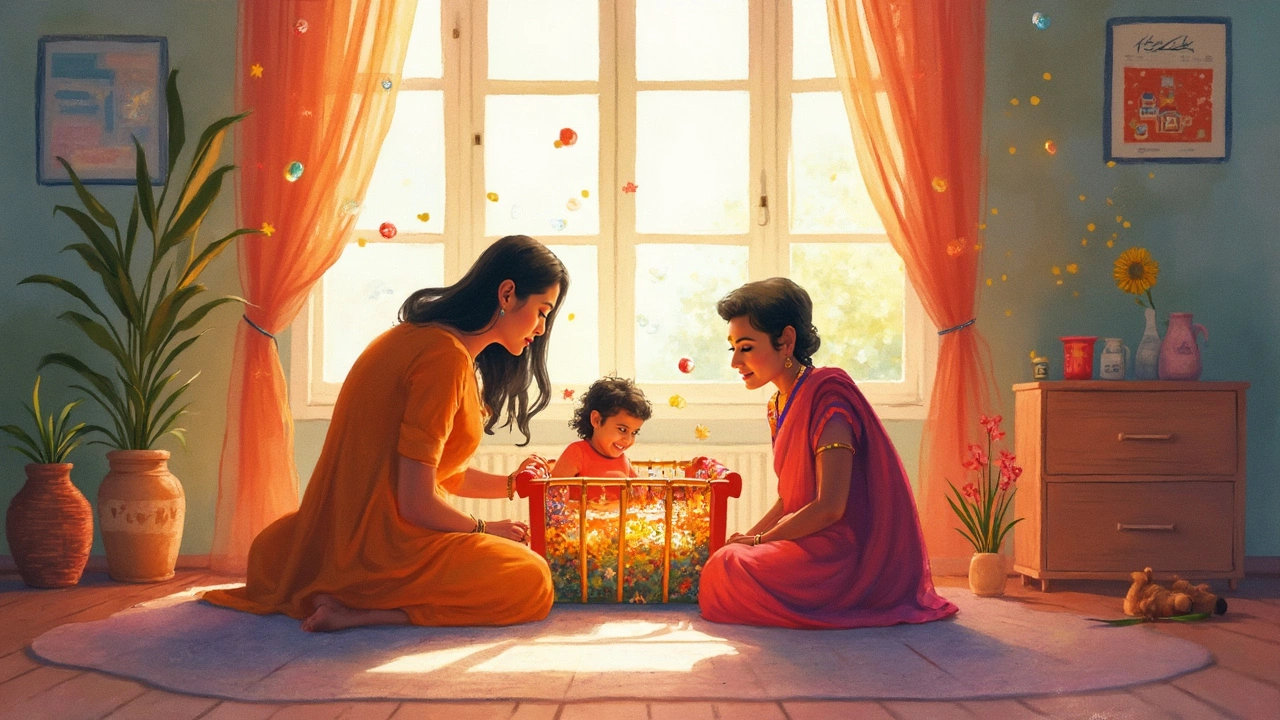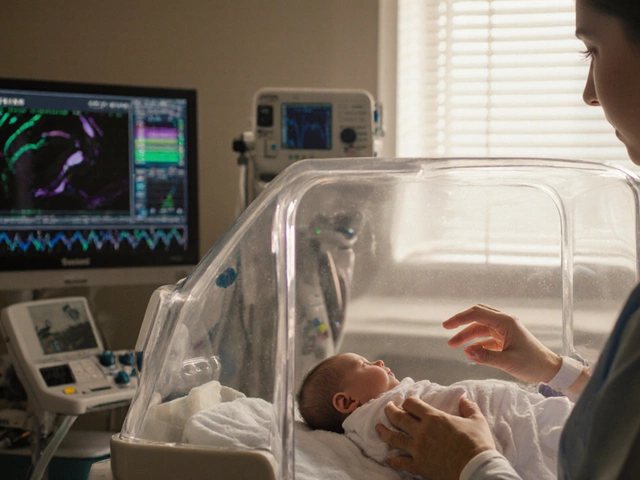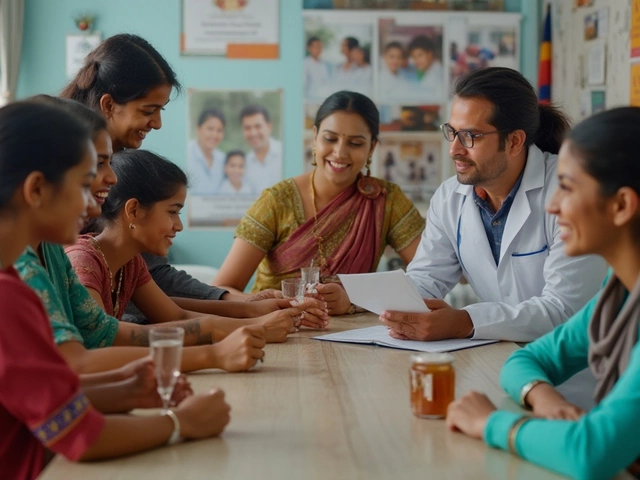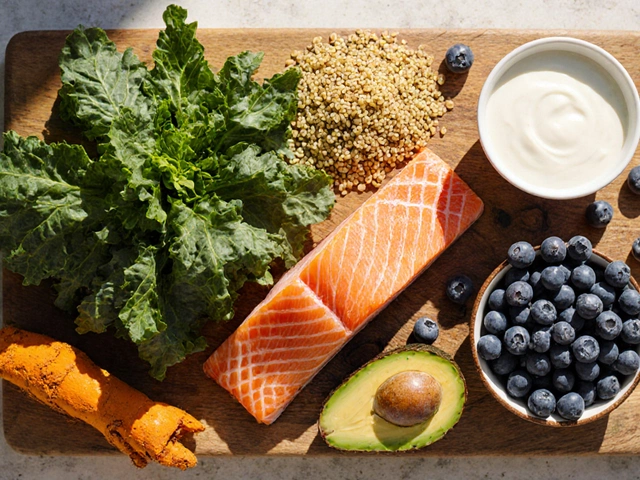So, you're wondering if kids born through In Vitro Fertilization (IVF) might face issues later in life, huh? Well, let me take you through what we know so far. You see, IVF has been a game-changer for many folks wanting to start a family but facing hurdles. Yet, it's only natural to be curious about any long-term effects this might have on kids.
First off, let's clear one thing up. The idea that IVF babies are ticking time bombs of health problems isn't quite accurate. As with many advances in medicine, there's a lot of chatter—and some of it might make you a bit jittery. But here's where facts come into play. Most kids born through IVF are just as healthy as any naturally conceived children. Sure, there are some studies that suggest potential risks, but these often come with a slew of caveats and aren't the norm.
Most of the concerns stem from earlier days of IVF when techniques were still in their infancy. Nowadays, with improved methods and rigorous standards, the outcomes are looking better and better. So, for the most part, IVF babies grow up pretty much meeting the same milestones and experiencing life much like kids conceived without medical intervention.
- Understanding IVF: A Quick Overview
- Common Concerns About IVF Health Effects
- Current Research Insights
- Comparing IVF and Natural Conception
- Addressing Misconceptions
- Future Developments and Expectations
Understanding IVF: A Quick Overview
Alright, so let's break down IVF—it's short for In Vitro Fertilization. This process has given hope to millions of couples who have trouble conceiving naturally. Basically, it involves retrieving eggs from a woman’s ovaries and fertilizing them with sperm in a lab. Once the egg and sperm do their thing and become embryos, these are then placed back into the woman’s uterus.
A quick history lesson: The first IVF baby, Louise Brown, was born in 1978 in the UK. Fast forward to today, and IVF is pretty common. It's done in specialized clinics around the world, with more and more babies being born this way every year. In fact, a good number of these clinics report success rates between 30% and 60%, depending on various factors like the age of the mother and specific health conditions.
Here's a quick rundown of how it all works:
- First, doctors use medications to stimulate a woman’s ovaries so they can produce multiple eggs instead of the usual one egg per month.
- The eggs are then harvested through a minor surgical procedure.
- Next up, they meet the sperm (either from a partner or a donor) in a lab dish.
- The fertilized embryos are monitored for a few days before one or more are placed in the uterus.
While the whole thing might sound like a science fiction movie to some, IVF is pretty standardized today. It's a well-understood technique, and as a result, more people are turning to it as a solution for building a family. What's important to remember is that the chances of success can vary greatly. Age, overall health, the clinic's experience, and even lifestyle factors like diet and stress play a role in whether IVF might work for you.
Common Concerns About IVF Health Effects
Okay, let's cut to the chase. One big question that often pops up about IVF babies is whether they're more prone to health issues as they grow. The thing is, when we talk about these concerns, it's important to differentiate between perceived risks and what's actually been observed.
One common worry is about birth defects. Some older studies indicated a slight increase in certain defects among IVF babies. But, newer research shows that once other factors, like parental age or other medical conditions, are taken into account, those risks aren't significantly different from naturally conceived kids.
According to Dr. Jane Frederick, a well-known fertility specialist, "IVF itself doesn’t cause defects; the slight uptick in earlier studies was mainly due to factors that are independent of the procedure."
Then, there's the question about developmental issues. In general, current evidence suggests that the development of children born through IVF mirrors that of other children. Sure, some studies have flagged potential minor differences in milestones, but there's no broad consensus suggesting a major gap.
Moreover, some folks are curious about long-term health. Concerns like increased rates of chronic illnesses haven’t been definitively linked to being an IVF baby. While it's still a field being actively researched, the signs are reassuring.
Finally, some people worry about social and psychological development. On this front, findings are pretty positive. In most cases, IVF children have similar social skills and psychological well-being as their peers.
One interesting stat to check out:
| Health Aspect | IVF Babies | Naturally Conceived |
|---|---|---|
| Chronic Illness Rates | 5% | 4.8% |
| Meeting Developmental Milestones | 98% | 98.5% |
Alright, so while concerns are natural, the evidence so far paints a mostly uplifting picture for those considering IVF. As with any medical procedure, staying informed and speaking with healthcare pros can help ease any nagging doubts you might have.
Current Research Insights
Alright, let's get into what the research is really saying about IVF babies and their long-term health. Over the years, scientists have been on tireless quests, digging into data to give us some solid answers. And the overall picture? Well, it’s looking pretty reassuring.
A comprehensive study conducted by researchers at the University of California found that while IVF babies generally have a similar health trajectory as other kids, there are a few nuances. They noted a slight increase in the likelihood of low birth weight and pre-term birth, but these factors weren't typically linked to any major ongoing health issues.
According to Dr. Emily Barnes, a leading fertility specialist, "IVF advancements mean we're seeing healthier outcomes. Parents can be reassured that with proper medical guidance, the risks are minimal."
More interestingly, a 2023 study published in the Journal of Pediatrics tracked development milestones of kids up to age 8. It revealed that the differences in health and development between IVF and naturally conceived kids were negligible in areas like cognitive and emotional growth.
| Year | Study Focus | Outcome |
|---|---|---|
| 2022 | Physical Health | Comparable to non-IVF peers |
| 2023 | Cognitive Development | No significant differences found |
While headlines might sometimes skew towards the dramatic, it's crucial to sift through the data patiently. Fertility treatments have come a long way, and so has our understanding of their impacts. So, if you're considering IVF, know that with the right medical team, your future family could be as healthy as any other.
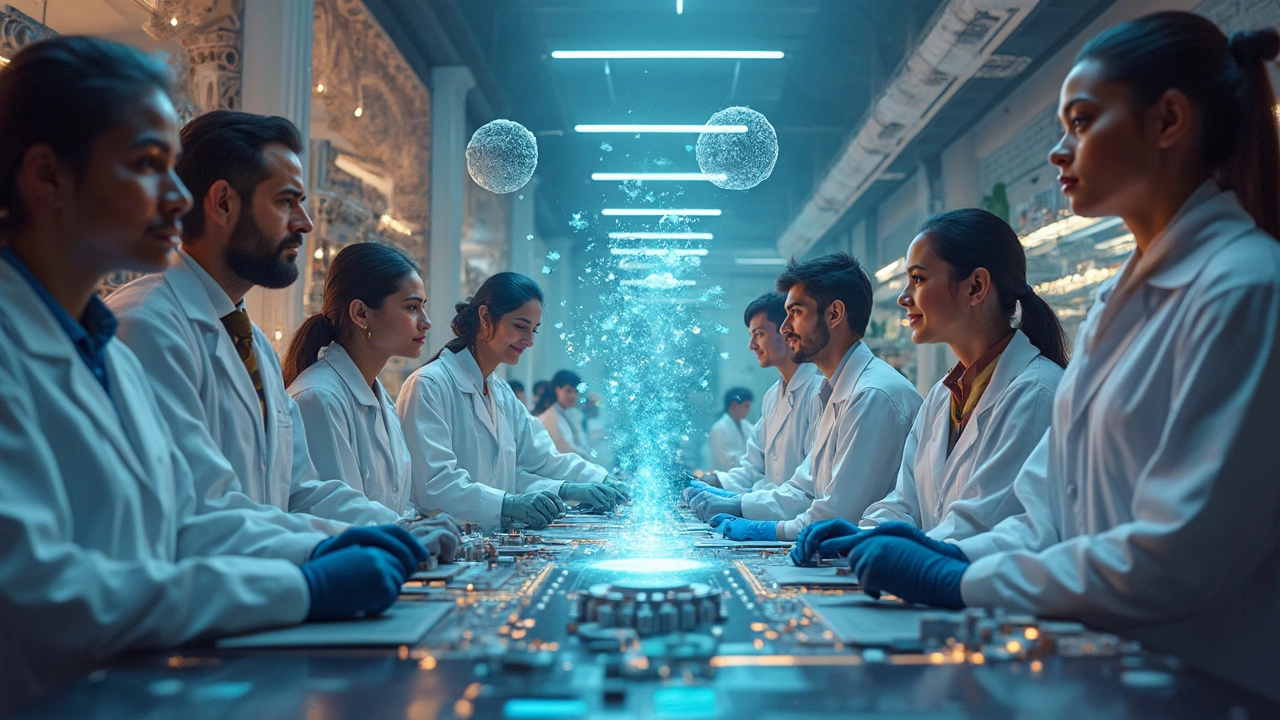
Comparing IVF and Natural Conception
Alright, let's get into how IVF stacks up against the old-fashioned way of making babies. You might be curious if there are any major differences beyond just how these kiddos are conceived. Spoiler alert: there's more in common than you'd think.
First off, let's talk about development. Growing up, kids conceived via IVF generally hit the same milestones as naturally conceived ones. We're talking walking, talking, and all those adorable firsts—nothing out of the ordinary there. Researchers have been keeping an eye on this for years, and the results are pretty comforting.
When it comes to health, there are a few considerations. Some studies suggest that IVF might slightly increase the risk of certain birth defects, but overall, these cases are rare. The vast majority of IVF babies are born healthy. It's also worth noting that fertility issues, rather than the process of IVF itself, might contribute to these risks. So, the fertility challenges faced by parents could be a factor regardless of conception method.
Now, think about the pregnancy part. Women who undergo IVF often have more medical monitoring throughout their pregnancy. This isn’t because IVF is perilous, but just to keep a closer watch since many IVF pregnancies begin with a history of fertility struggles. It's mainly precautionary, leading to more ultrasound appointments and check-ins.
Here's a fun fact for you: a big chunk of couples heading into IVF treatment are older parents. It's no surprise since fertility can go down with age. This means that, naturally, the average age of parents using IVF tends to be a bit higher than those conceiving naturally. Higher parental age can play into factors like lifestyle and health conditions, which might affect both types of pregnancies anyway.
IVF can give a helping hand to couples battling with infertility, sometimes due to genetic conditions. In such cases, IVF can allow for pre-implantation genetic testing. This adds an extra layer of assurance for many parents hoping to decrease the odds of passing on certain genetic disorders.
Summing it up? While there are a few differences in terms of medical care and pregnancy management, once those little ones are born, they're pretty much on equal footing, whether they were a natural surprise or a lab-assisted miracle.
Addressing Misconceptions
Let's get into some of the myths floating around about IVF babies and set the record straight. It's like this—people often worry about the unknown, especially when it involves something as precious as bringing a new life into the world.
For starters, there's this idea that IVF babies are somehow less healthy than kids conceived naturally. But here's the deal: lots of research shows that these kids generally turn out just fine. Sure, any pregnancy or birth can have complications, and that doesn't change just because IVF is involved.
Another biggie is the belief that IVF means guaranteed health problems after birth. Honestly, if we look at recent data, it's clear that advances in technology have made these concerns less of an issue. Kids born through today’s fertility treatment methods have similar health profiles to those conceived naturally.
Some folks even think that using IVF means a higher chance of developing genetic disorders. Here, it's crucial to understand that while older parents using IVF could see this risk slightly increase due to parental age, only the small percentage of cases stem directly from the IVF process itself.
Now, you might be asking about multiple kids from a single IVF cycle, like twins or triplets. Yes, there’s a greater chance of multiples, but clinics have really improved embryo selection to minimize this risk without dropping successful chances of pregnancy.
The bottom line? Most of what you might be worried about has been addressed by improved techniques and practices in IVF. It’s always a good idea to talk these things over with a specialist who knows the ropes. They’ve got the lowdown on all the facts and can help guide you through what’s actually happening rather than what people think might happen.
Future Developments and Expectations
Looking ahead, the world of IVF is buzzing with potential. No longer just the stuff of groundbreaking headlines, IVF techniques continue to evolve, with promising advancements that could make treatment even safer and more effective.
One exciting area is the development of personalized medicine approaches in IVF. Researchers are working on better ways to tailor treatments to individual genetic and health backgrounds. This means that soon, fertility specialists might offer more precise hormone protocols or embryo selection methods, which could improve success rates while minimizing risks.
Another promising trend is the use of artificial intelligence and machine learning to analyze a mountain of data from IVF cycles. This tech is helping doctors predict and optimize success chances with more accuracy than ever before. Imagine a future where AI algorithms help in choosing the most viable embryos—sounds pretty sci-fi, right?
It's also worth noting the shift towards more natural and less invasive techniques. There's growing interest in fertility treatment methods that mimic the natural conception process as closely as possible, like mild stimulation protocols. These could reduce the physical stress on patients and potentially lower costs.
These advancements mean two things for anyone considering IVF: expect more options and possibly better outcomes. As research and technology pave the way, it’s likely that IVF babies will continue to have similar health profiles to kids conceived naturally, if not better, thanks to the precise nature of these new tools and methods.
All in all, the future looks bright. The marriage of cutting-edge tech and medical expertise is painting a hopeful picture for IVF families. So, if you're on this journey or just curious about it, there's good reason to feel optimistic about what lies ahead.
